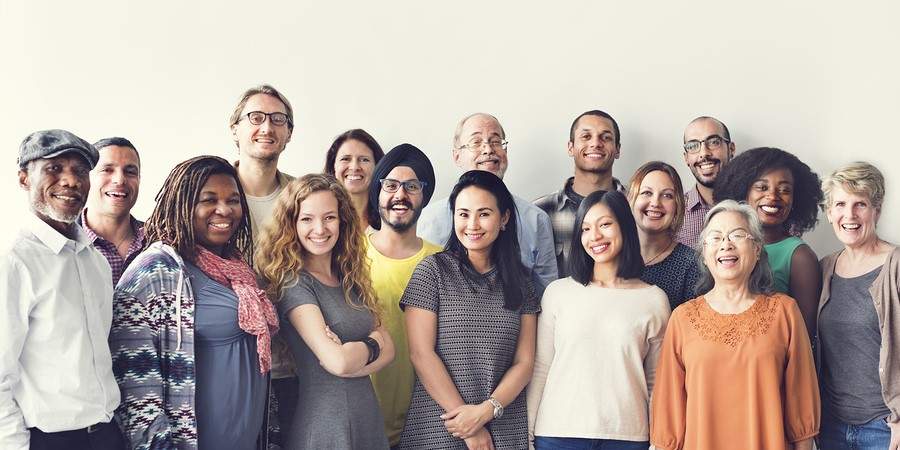
A New Kind of Family: Refugees in the Modern Workplace

Diversity: it’s been a hot topic over the past year. This year’s American Congress welcomed a long list of firsts and record numbers of women, and it’s just one of the modern workplaces welcoming fresh faces and big changes.
Why refugees?
I’m a lucky guy. Throughout my career, I’ve managed teams of all kinds, and been continuously inspired by the impact of work, business, and stewardship in communities. Diversity is a huge part of building thriving communities, and I see it firsthand. I get to reap the rewards in my workplace everyday — through refugee teammates.
As I set out to build my career, I have been increasingly encouraged by the potential of business to help people. Staffing and recruitment agencies do so much more than connect people with paychecks — after all, finding a great professional fit can often feel like a tough shopping experience for both candidates and hiring managers.
At a certain point, I discovered that two of the major problems in modern work that I hoped to solve — and bring home to my community — were directly related.
- Refugees are being resettled in the U.S., but not given opportunities to work and build a new life.
- American companies are struggling with a labor shortage.
Thus Amplio Recruiting was born. I built this organization to find great companies who seek the help of smart, talented, motivated refugees, and together we build all-star teams.
Refugee workers have fled their homes and native countries to escape natural disaster, famine, war, and persecution. Now, they’re ready to start over. They can make your workplace more diverse, efficient, and, let’s face it — happy.
-
Refugee workers show up — and inspire the rest of us to do the same.
There’s a lot of chatter about how workplace diversity enhances productivity, inspires more satisfying teamwork, and contributes to great ideas and superior innovation. All of that is true — I’ve seen it myself.
But before all of that, refugee workers are dependable. They show up. Before any English classes or staff potlucks or bonding outings, the refugee workforce falls among the most dedicated, motivated, and reliable staff on the job, no matter the industry. And as our friends at Storr Office Environments can confirm, they do it all with a big smile. We have also seen that refugee workforce also engages much better in 360 feedback process.
-
Engaging diverse teams builds better management.
Everyone thrives in environments where they feel valued — it’s why companies like Hitachi invest in happiness sensors (wearable tech!) for their employees. For managers with employees who may not even speak the same language, bringing value to everyone can be, well, a bit more challenging.
For our friends at Storr, that meant partnering with a local college for the first time ever to offer English language classes. At Urban Mattress, it was a staff party when Kutaiba and Omar became citizens. It’s taking responsibility to boost workers’ happiness in unexpected — and much appreciated — ways.
Great managers are expert communicators, and diverse teams demand just that: genuine listening, and paying attention. For some teams, that might mean building out a “floating paid holiday schedule” to recognize different traditions, or updating training materials and signage to be more inclusive. No matter the method, it builds respect and loyalty amongst the whole team — and morale skyrockets.
-
Turnover for what? Refugee workers have higher retention.
Training, retraining, and hiring again: there’s nothing worse than losing resources to low retention rates. It takes time and energy that most teams don’t have to waste, and it burns up existing employees and good vibes, too.
The refugee workforce isn’t angling for the next best thing, or fighting to get a raise from the company across the street — these workers are seeking opportunity, and they’re thankful for it. We’ve seen it firsthand, and through broader studies. Turnover for refugees is low, and their commitment is serious: 73% of companies reported a higher retention rate for these team members.
Goodbye, stress; hello, new best workers.
-
Work hard, get paid: the refugee workforce isn’t afraid to hustle.
They don’t just show up, they arrive early. They don’t complain about staying late. They want to work.
I’ve personally learned so much from all the people I’ve met through Amplio, and I’ve never been so impressed by raw work ethic. Some refugees have never known education or a job outside of temporary shelters and camps, and their passion to provide — to help take care of parents and siblings, or to buy a home — is simply unmatched.
We had the honor of watching our friend Kisembo not only learn English at the age of 18, but earn a GED, acquire electrical training, and land a permanent job. He’s proud to be there, and they’re lucky to have him.
-
We laugh, we fight, we grow — together.
Refugee workers are creating a whole new life, and their teammates and managers play a huge role in building that world. From mattress companies to hospitality teams to pest control squads, the word we hear most often is “family.”
Unique cultures and religions, holidays we’d never considered, new languages, and yes, of course, potlucks — this is the texture that makes our communities and workplaces fascinating. It brings us together, and challenges us to listen and to show up.
These are real teams — productive, efficient, collaborative, happy.
This is a guest post by Chris Chancey, CEO and Founder at Amplio Recruiting. He focuses on having a direct impact in integrating the refugee workforce with modern American companies. His agency finds great placements for exceptional members of this unique community, building diverse teams for industries of all kinds.
Analysis


Manan Shah